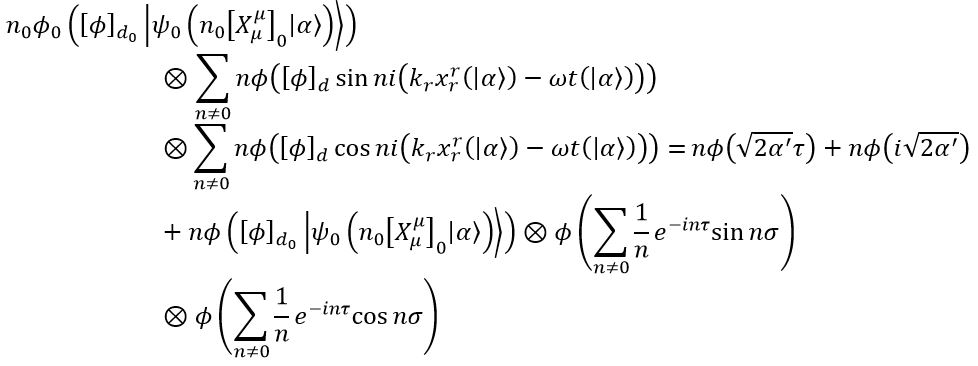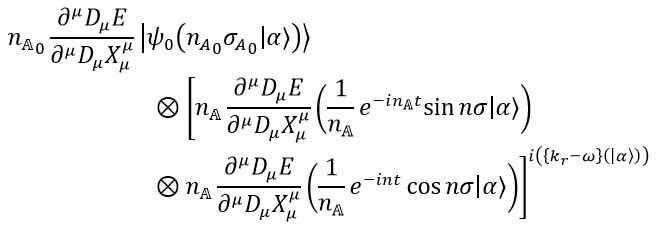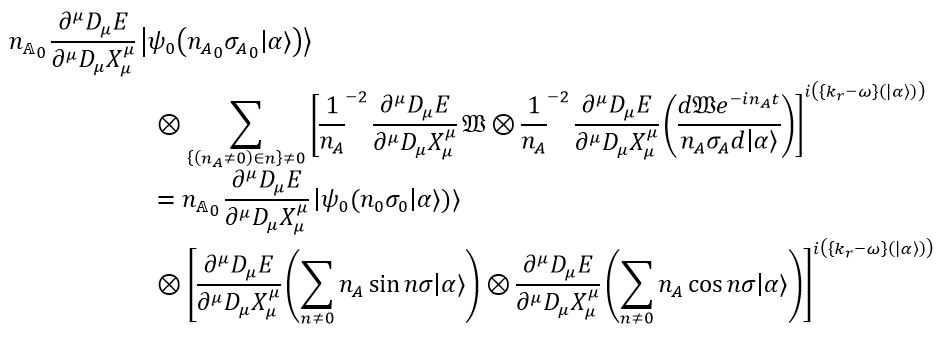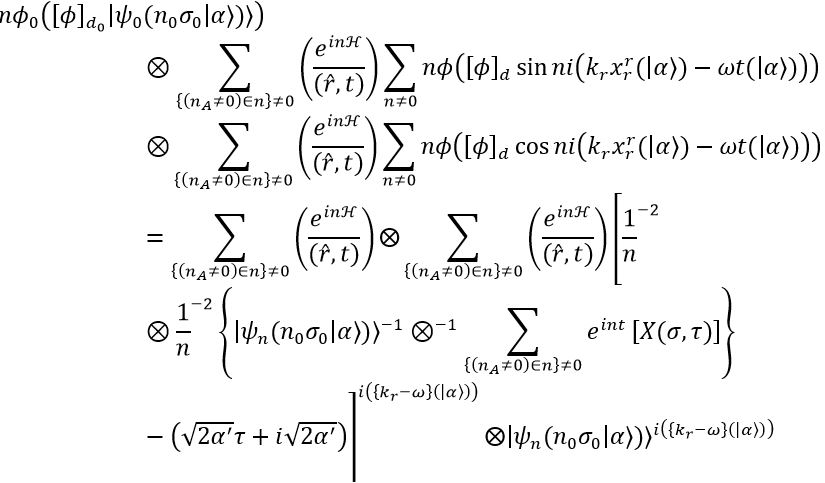A Proof of String Theory from a Proof of a Kazula Klein theory in 10 dimensions using Diffeomorphism Symmetry
Grade 5
Presentation
Problem
A PROOF OF STRING THEORY FROM A PROOF OF A KALUZA KLEIN THEORY
IN 10 DIMENSIONS USING DIFFEOMORPHISM SYMMETRY • PART 1
Classical String Theory • Junlong Chen • February 8th 2024
1. Abstract.
In December, I wrote many a paper on energy requirements for a proof of string theory and also string theoretic gravitation. As a continuation of those papers, I am writing a paper on a formal proof of string theory. A formal string theory has not been found for many decades. Hence, in this paper I examine a model of string theory where the Fourier series of an arbitrary energy field is equivalent to a relational equation including a string manifold. This leads to new versions of applying Kaluza Klein Theory.
Method
2. Introduction.
Let there be some Energy Field ϕ such that
Where is the state space for all solutions
that satisfy the "energetic" wave function. Taking the fourier series of the field, and we obtain,
The equality we must create, must therefore be between the above Fourier series of a field and the string theory expansion, operated by
Which is ϕ such that you can operate it on any x such that
We will have must have that we must find a relational equation, that looks something like (with more operations applied on it)
This is not correct. But we will prove that there exists an equation relating the Fourier series of the field and the field operated the open string expansion, . We prove this by some Wave functional Manipulations, and a proof for the Kazula-Klein theory excluding the Hierarchy Problem in the next part. Our first requirement is to remove the momentum terms due to the fact that our equations must be massless for now. And so,
We are going to modify these equations to find a general equation relating The Fourier series of the FIeld and the Open String Expansion in the reasearch section of this document.
Research
3. General manipulation and a equation for initial terms in the equation
Our goal now is to create a wave function from what we have. The first step is a wave number that is energy bounded.
Lemma 3.1
First let us assume that
Now k is bounded by energy levels. Therefore,
Where is the ground state and
is the maximum energy state. And we will define now that,
END OF LEMMA.
Lemma 3.2
From Lemma 3.1, we can determine that any ψ must have . Some plugging in will therefore yield us
Knowing this, we have rules for k such that it does not grow to such extreme levels in the equality we want to present.
END OF LEMMA.
Now we shall focus on a conversion of in the open string theoretic expansion to
in the fourier series of the field.
Lemma 3.3
To accomplish our objective, we must first understand that
And then we derive from the basic definition of the wave function,
We must find an equation that encapsulates the idea that there exists a relation
From the definition of the wave function presented in the second equation in this lemma, some arithmetic gives us
Where we let ,
and
such that
Now, we just put back the terms and we get
END OF LEMMA.
Lemma 3.4
I will develop a final, smaller lemma to get an equality between the wave function and the terms 
terms. Let us now ignore terms like
and consider
Our objective is to find a relation justifying such that
Realizing that 
Realizing that this is just an algebraic operation, to get the required relation, we shall obtain
Where we have an arbitrary n, say, and an arbitrary σ, say
, and
. The operations made to get this equation are in the Log-book. Otherwise, these equations imply a relation
This is the relation between the Fourier series and the string expansion.
END OF LEMMA
Data
Therefore, after proving Kaluza Klein theory, T-duality, and certain symmetric theorems in the Standard Model, General Relativity, and Quantum mechanics, we can present a variation on supersymmetric string theories where there exists a Field-Expansion duality (F-E duality).
Conclusion
I have therefore defined a duality between M-theory and Relativistic Quantum Field theory. This implies a field theory of M-theory which can define physical objects. All stemming from relational equations defined in Lemma 3.4. Supersymmetric (and Pertubative) String Theories still require proof for the T-duality found in its framework, proof for Kaluza-Klein compactifications, proofs with large extra dimensions postulated in recent years. I shall continue my researching and provide such proofs in the second part, which will come out at a later time.
Citations
[1] Large Extra Dimensions at Linear Colliders, K. Shridar arXiv:hep-ph/0004053v1 6 Apr 2000
[2] The Hierarchy Problem and New Dimensions at a Millimeter, Nima Arkani–Hamed, Savas Dimopoulos, and Gia Dvali arXiv:hep-ph/9803315v1 11 Mar 1998
Acknowledgement
I would like to give thanks to my Homeroom teacher (Ms McNutt) for editing and pointing out typos, as well as the joyful, enthusiastic intrest brought to me by my class and friends; also the Science club teachers and Ms. Lai & judges at my school for giving advice on my project. And finally, my mom has been helping and organizing my schedules. I thank you all.


















